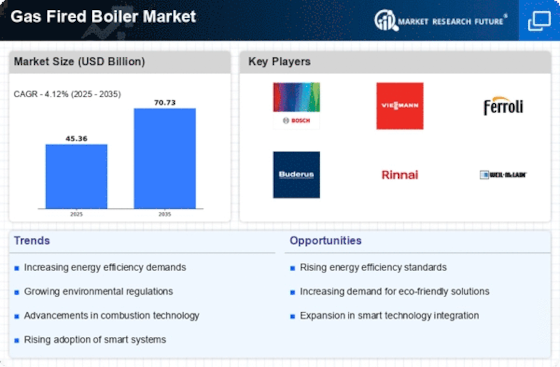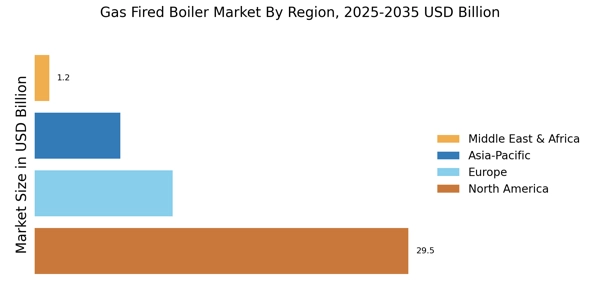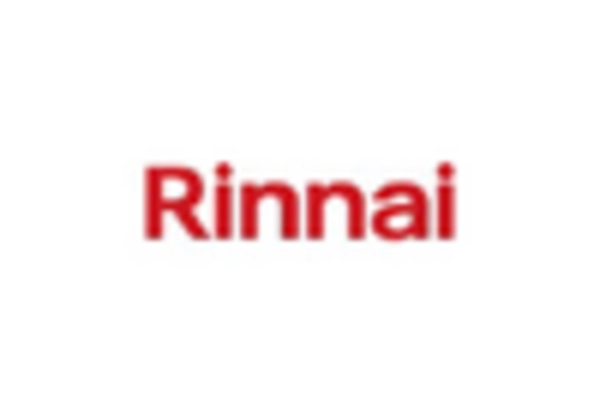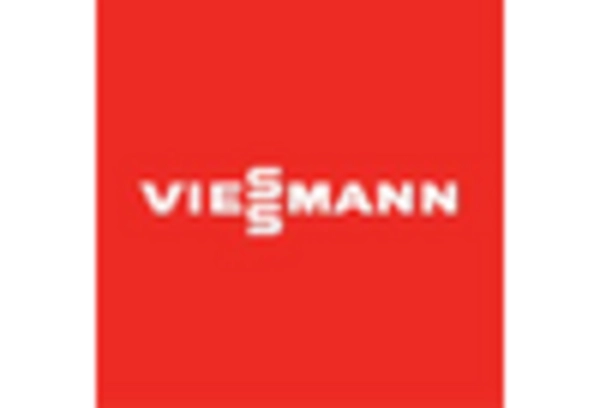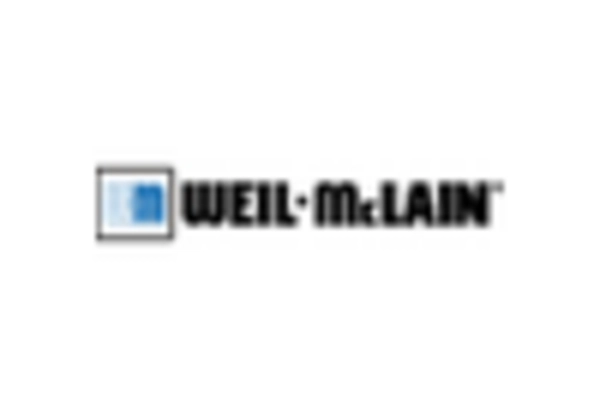Regulatory Support for Clean Energy
The Gas Fired Boiler Market benefits from a favorable regulatory environment that emphasizes clean energy solutions. Governments are implementing stringent regulations aimed at reducing carbon emissions, which is driving the transition from coal and oil to natural gas. This shift is evident in various regions where policies incentivize the use of gas fired boilers due to their lower emissions compared to traditional heating systems. For instance, the implementation of emission reduction targets has led to an increase in the installation of gas fired boilers, thereby expanding the market. The regulatory support not only enhances the appeal of gas fired boilers but also positions the Gas Fired Boiler Market for sustained growth.
Increasing Demand for Energy Efficiency
The Gas Fired Boiler Market is experiencing a notable surge in demand for energy-efficient solutions. As energy costs continue to rise, consumers and businesses alike are seeking ways to reduce their energy consumption. Gas fired boilers, known for their efficiency, are becoming increasingly popular. According to recent data, the efficiency ratings of modern gas fired boilers can reach up to 98%, significantly lowering operational costs. This trend is further supported by government initiatives promoting energy efficiency, which encourage the adoption of advanced heating technologies. Consequently, the Gas Fired Boiler Market is likely to witness substantial growth as more entities prioritize energy savings and sustainability.
Rising Industrialization and Urbanization
The Gas Fired Boiler Market is significantly influenced by the ongoing trends of industrialization and urbanization. As countries develop, there is an increasing demand for reliable heating solutions in both residential and industrial sectors. The expansion of manufacturing facilities and urban housing projects necessitates efficient heating systems, with gas fired boilers being a preferred choice due to their operational efficiency and lower emissions. Data indicates that the industrial sector accounts for a substantial portion of gas fired boiler installations, further driving market growth. This trend suggests that the Gas Fired Boiler Market will continue to thrive as urban areas expand and industrial activities increase.
Shift Towards Renewable Energy Integration
The Gas Fired Boiler Market is witnessing a shift towards the integration of renewable energy sources. As the world moves towards sustainability, there is a growing interest in hybrid systems that combine gas fired boilers with renewable technologies such as solar and biomass. This integration allows for reduced reliance on fossil fuels while maintaining the reliability of gas fired systems. The potential for hybrid solutions is significant, as they can enhance energy efficiency and lower carbon footprints. As more consumers and businesses seek sustainable heating options, the Gas Fired Boiler Market is likely to adapt and innovate, ensuring its relevance in a changing energy landscape.
Technological Innovations in Boiler Design
Technological advancements are reshaping the Gas Fired Boiler Market, with innovations leading to improved performance and reliability. Manufacturers are investing in research and development to create boilers that are not only more efficient but also equipped with smart technologies. These innovations include features such as advanced control systems and enhanced safety mechanisms, which appeal to both residential and commercial users. The introduction of condensing boilers, which utilize flue gas heat recovery, exemplifies this trend, offering efficiency levels that were previously unattainable. As these technologies continue to evolve, the Gas Fired Boiler Market is poised for significant transformation.


